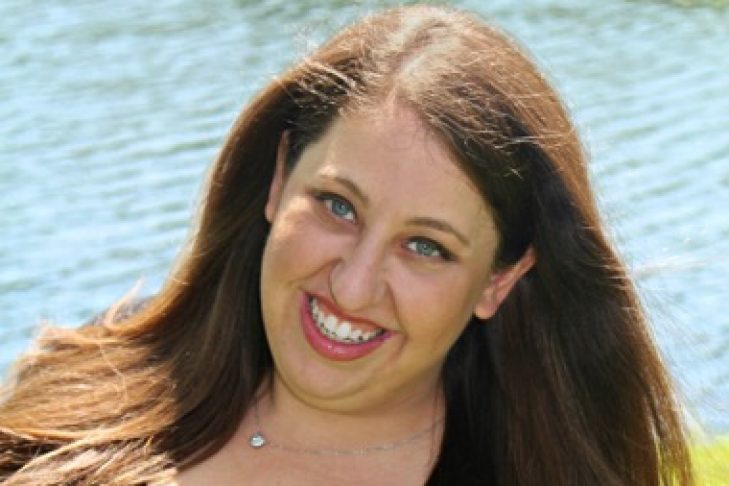In an event sponsored by the Ruderman Family Foundation, Pamela Schuller performed her routine, “What Makes Me Tic: Comedy, Disability and Inclusion,” for several disability and nonprofit professionals last week. Standing at 4-foot-7 (give or take 1/8 inches), Schuller has an incredibly affable demeanor. Her smile didn’t waiver as she explained her disorder. “Essentially, my body doesn’t match my brain,” she said. Tourette syndrome causes a person to experience “involuntary repetitive movements and vocalizations” (more commonly referred to as “tics”).
Schuller’s journey to “loving differences” was arduous at best. As a child, she was diagnosed with the country’s worst case of Tourette’s. Having been told by an educational institution she was “a challenge others need to overcome,” she began identifying herself as separate from society. She saw herself as a “them,” an “other” put in a box to be thrown around with labels like “disabled” and “special needs.” One of her teachers went so far as to inform her she needed to lower her expectations about her life because “kids with disabilities…don’t get into college.” Full of pain and anger, Schuller sued the school system and won.
Schuller’s first foray into inclusion was at her new boarding school in Vermont, whose state motto she found to be, “Come as you are, but, like, the weirder the better.” That’s not to say her new teachers let her get away with anything; Schuller grinned as she announced she still holds the record for getting the most detentions in school history.
The school staff was determined to empower her to refute any label society put on her and pushed her into various artistic endeavors. She finally found her fit in an improv class, where the only rule was, “You respond to everything with, ‘Yes and….’ You do not say ‘no.’” Her classmates worked her tics into scenes and she began to see herself as a part of society. Her teacher asked her, “How can you ‘Yes and…’ the world back?” She started by recognizing something about herself that’s separate from Tourette’s—she was funny.
Related
Schuller became comfortable with herself for perhaps the first time to the point where she let herself feel excited about wanting to see “Legally Blonde” in a movie theater, somewhere she hadn’t let herself go in years. Encouraged by her peers and teachers, she addressed the theater audience before the film to tell them she might bark but would try really hard not to. “Let me try,” she implored. “Let me try.”
After that, Schuller was unabashed about disclosing her condition to strangers around her. One plane ride found her hissing throughout the flight. As she began attracting stares from passengers, she explained her Tourette’s to everyone onboard and made light of the situation by channeling Samuel L. Jackson’s infamous line in “Snakes on a Plane.” (Given the confidence she displayed during this routine, we can all bet her impression was delivered with the most conviction that could ever possibly be mustered.)
Like Elle Woods, the protagonist in “Legally Blonde,” Schuller found her way and came to defy societal and institutional-inflicted stereotypes. Her story of being so mistreated when she was younger, she said, “Isn’t as unique as it should be.” To combat today’s still-rampant discrimination, she has dedicated her adult life to teaching and creating communities where everyone can be celebrated. “A community is only as strong as its ability to support those who are struggling the most,” she said. It’s about seeing the best parts of people, not because it’s community service or “the right thing to do.”
For Schuller, “a lot of creativity” is the key to building an inclusive community. One such venture found her teaching improv to teens with disabilities. During this program, professional comedians from Comedy Central and MTV helped the teenagers create standup routines around their individual disabilities. The performance at the end of the program was a celebration of embracing and loving differences that sold out a 225-seat venue in New York City.
“Every person has struggles and challenges, but we need to celebrate what each one brings to the community,” she said. “There’s value in everyone.”





